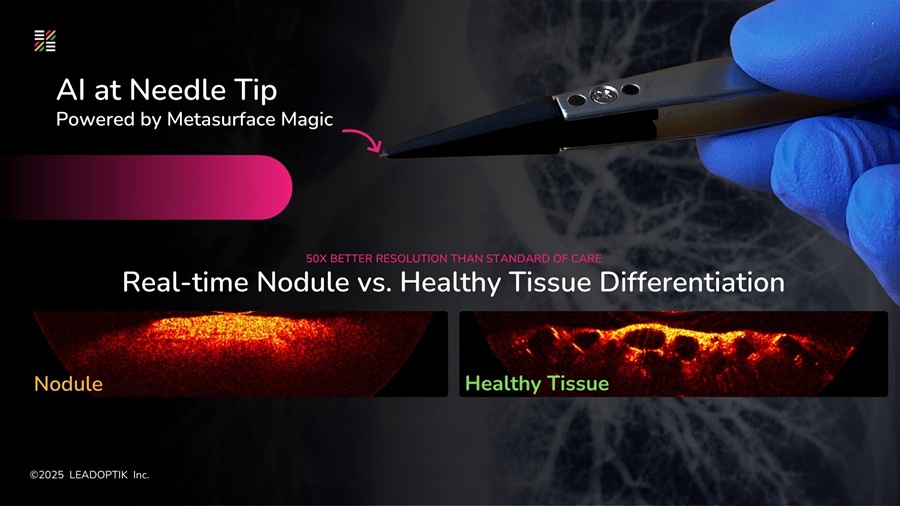Research Collaboration to Advance AI-Enhanced, Real-Time Optical Imaging in Lung Cancer Biopsy
Posted on 20 Mar 2025
Lung cancer continues to be the leading cause of cancer-related deaths globally, with survival rates heavily dependent on early detection and timely intervention. However, diagnosing small, peripheral lung nodules remains a significant challenge, often leading to inconclusive biopsies and treatment delays. Now, a new collaboration aims to integrate real-time optical imaging into biopsy workflows, providing physicians with immediate insights at the point of care and enabling a deeper understanding of tissue microstructure that could support future advancements in artificial intelligence (AI)-driven analysis.
Stanford Medicine (Stanford, CA, USA) and LEADOPTIK Inc. (San Jose, CA, USA) have entered into a research collaboration to explore the use of AI-enhanced real-time optical imaging in lung biopsy procedures. This partnership will evaluate how high-resolution imaging can improve lesion assessment and biopsy accuracy while also contributing to the advancement of smart tools designed to support clinical decision-making. LEADOPTIK is developing technology that provides high-resolution, real-time visualization directly to physicians. The imaging data collected through this collaboration will help refine the application of advanced analytics, further supporting clinical adoption of intelligent imaging solutions.

Stanford Medicine's Interventional Pulmonology Program will play a leading role in evaluating this technology's potential for lung biopsy procedures. Stanford will assess how high-resolution microstructural visualization, combined with emerging AI-powered image interpretation, can refine sample collection strategies and improve patient outcomes. By analyzing detailed optical imaging data in real-world clinical settings, the collaboration aims to enhance diagnostic precision and lay the foundation for more intelligent, image-guided decision-making.
"Stanford Medicine is committed to evaluating and advancing technologies that have the potential to transform patient care," said Dr. Harmeet Bedi, Director of Interventional Pulmonology. "This collaboration allows us to assess whether real-time optical imaging, paired with data-driven insights, can enhance lung cancer diagnostics and improve biopsy precision."
"This partnership with Stanford marks an important step in further validating our unique real-time imaging and exploring how advanced image analysis can further support physicians," added Reza Khorasaninejad, CEO of LEADOPTIK. "By combining cutting-edge imaging with emerging smart tools, we aim to improve the precision of lung biopsy procedures and enable more confident clinical decision-making."
Related Links:
Stanford Medicine
LEADOPTIK Inc.














